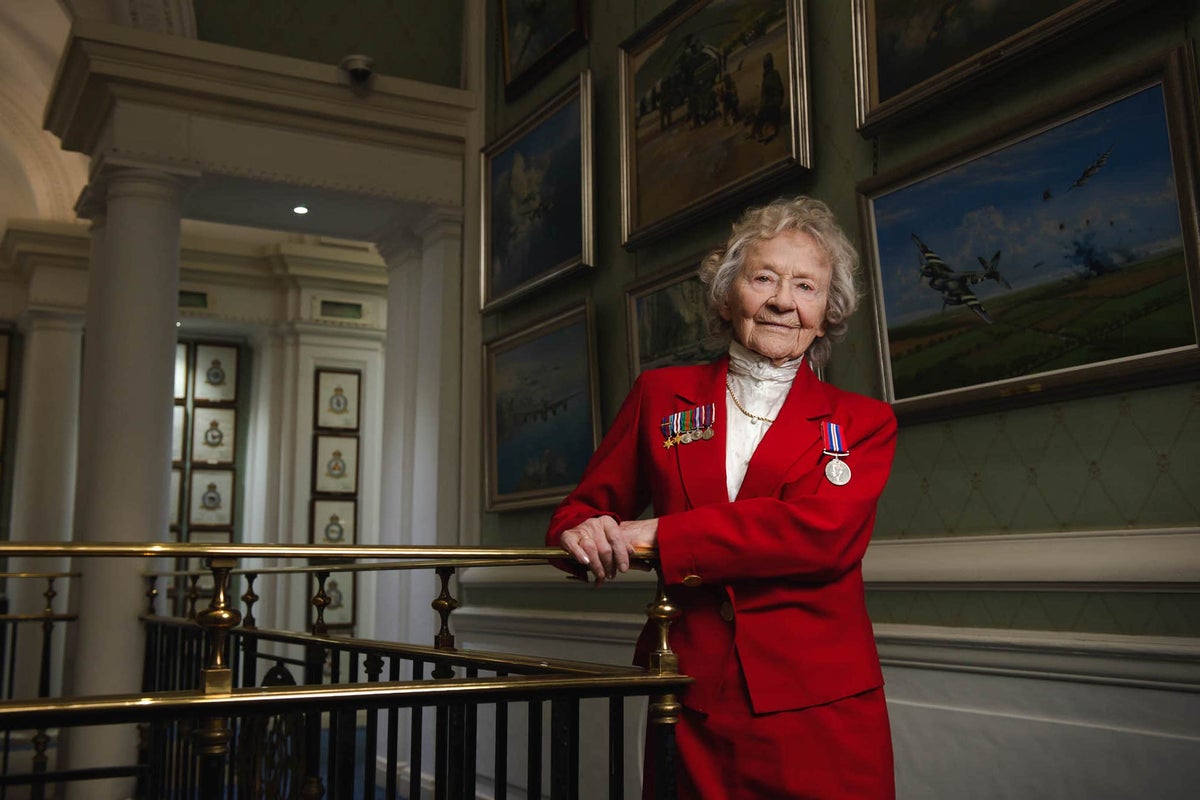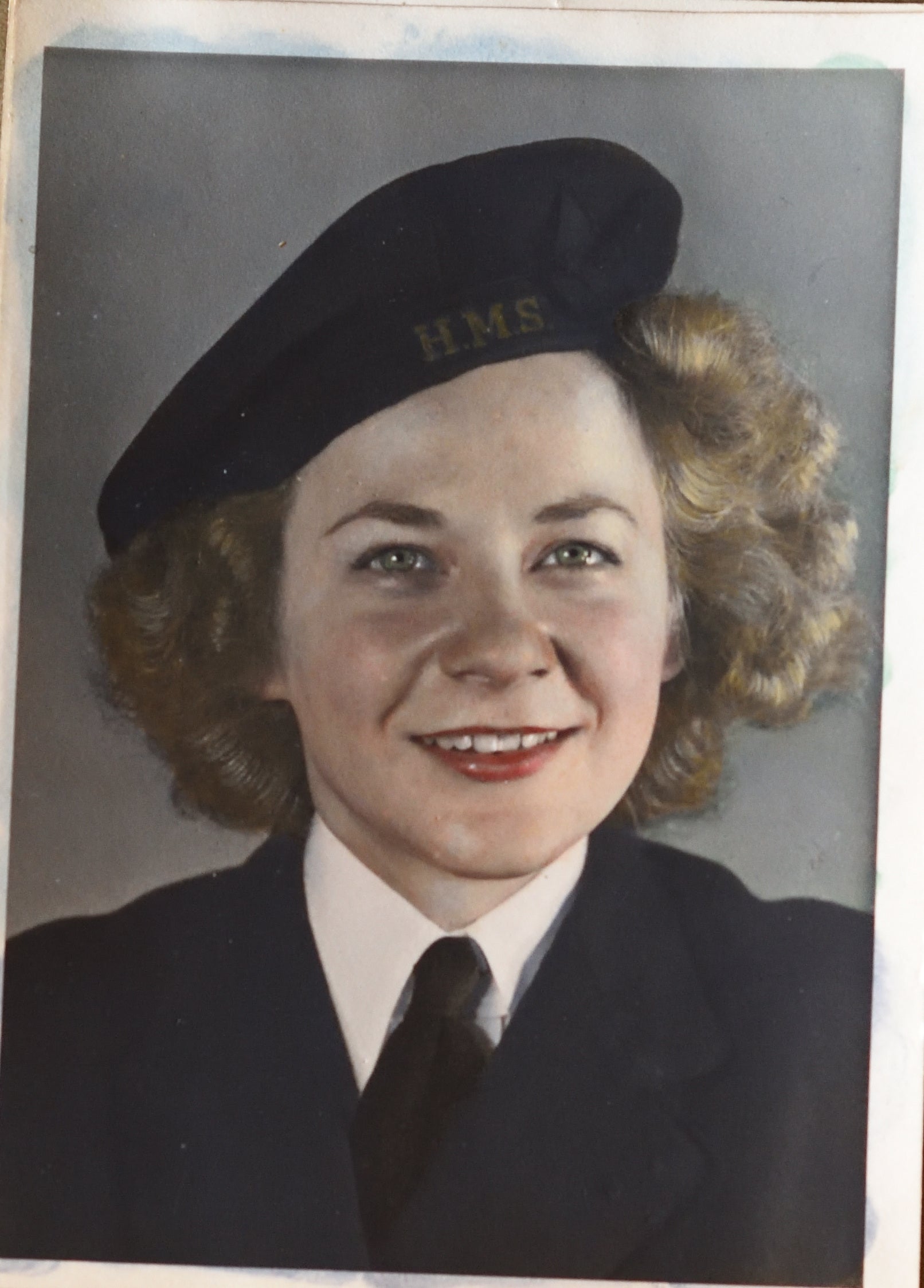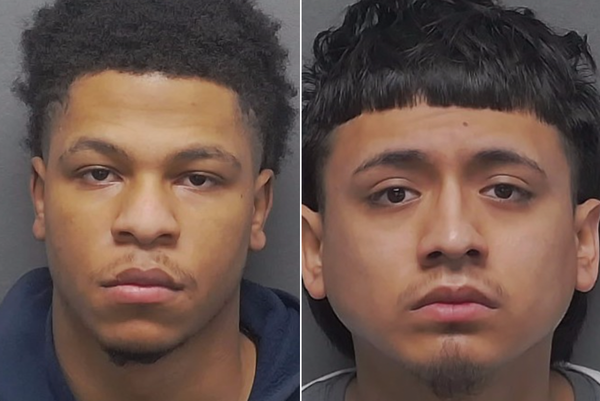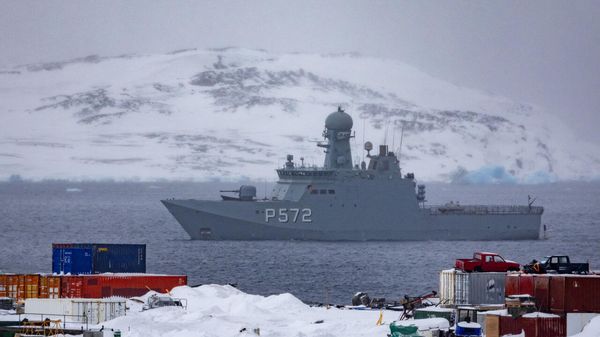
A 100-year-old veteran has described how she went “from school uniform into naval uniform” when she joined the Wrens to help defeat Nazi Germany during the Second World War.
Growing up in London, Dorothea Barron had been a schoolgirl during the Blitz before joining the Women’s Royal Naval Service in 1943, after turning 18.
During her three years of service she worked as a visual signaller and was responsible for communicating with ships coming in and out of port by Morse code, using an Aldiss lamp, and semaphore.
Her service saw her stationed at a number of naval sites around the UK – including in Scotland where she spent much of the war, initially at Port Edgar on the Firth of Forth and then Rosyth in Fife, Aberdeen, and Campbeltown on the Kintyre peninsula.
Ms Barron was below the regulation 5ft 3in minimum height required to enlist as a Wren, but “cheated” her way in following her experience of living through the Blitz.
“There was no doubt that the war had come,” she said.
“I had to defend my country and everybody felt that in those days, they were fighting for their country, for their homes, we had been bombed night after night.”
She described how her family went to the air raid shelter every night with their cat, dog, a budgie and a candle, and that she would do her homework and the family would sleep until the “all-clear”.
She went on: “Then we’d pop into bed for a couple of hours before we went off to school,” adding that she sometimes did not get to school until lunchtime.
Asked for her memories of her time in Scotland, Ms Barron recalled “the cold, the snow… I took my ice skates with me”.
She went on: “I think the Scottish weather, being able to skate out of doors was great fun.
“And tobogganing – we hadn’t got proper toboggans, anything would do to slide down a hillside or a mountain. It was great fun.
“The people were very pleasant. I wouldn’t say they were particularly enthusiastically welcoming, but they were very pleasant.”
She also has fond recollections of a particular cinema she used to visit when she was stationed at Campbeltown.
“It had at the back what were called the ‘golden divans’, which were double seaters, two seaters,” she explained.
“They were always nicknamed the ‘golden dive-ins’. You could sit there with your arm around somebody quite easily.”
She said her work involved relaying “valuable” information to and from ships, and that there was a need for secrecy because of the threat of enemy spies.
“One had to be very careful whatever one said, because there may have been ear-wiggers sitting there, trying to pick up information, which was why we all had headbands which just said HMS on,” she said.

“They never put up the name of the ship you were serving with.”
Ms Barron had been on a train heading to a naval base on the Isle of Wight in May 1945 when she heard the news that Nazi Germany had surrendered.
She recalled people cheering and there being a “tremendous feeling of relief”, but said there was also an awareness the war was not yet over, with victory in Japan not coming until August 15, more than three months later.
She said when she was demobbed she and her colleagues were sent home with “a few clothing coupons, a few food coupons” and told they could keep their uniforms.
“Well, we had nothing else to wear. I’d gone from school uniform into naval uniform,” she added.
Ms Barron was clear about the importance of marking the 80th anniversary of VE Day this year.
“There’s so few of us to commemorate it,” she said. “I think those who are being commemorated darned well deserve it.”
She added: “Nothing is ever achieved by going to war. Everybody loses a war. Regardless. Everybody loses in a war. We shouldn’t have them.
“We should have the wit to sit and talk things over, grab the politicians… and make them listen and sit and talk instead of committing other people to fighting.”
Ms Barron is hoping to return to Scotland later this year with the help of the Taxi Charity for Military Veterans, which raises money to take veterans on trips, including to places where they served.
“I’d love to see if my little tin hut of a signal station has survived the Scottish weather,” she said.
“I doubt it very much, but it’s going to be such fun looking for it.”
Earlier this year Ms Barron co-launched the charity’s Our Heroes Fund, which is aiming to raise £1 million by VE Day.
Charity chairman Colin Mills said: “As a small niche charity that is wholly reliant on grants and donations, we were delighted when our ambassador Johnny Gallagher and the amazing Dorothea Barron launched the Our Heroes Fund on April 17.
“The money this fund raises will allow us to fund future trips to the continent, social events across the UK, as well as making veterans’ wishes come true in their final years.”
To donate to the fund visit https://www.justgiving.com/page/ourheroesfund, and for more information about the Taxi Charity, visit https://www.taxicharity.org/.







